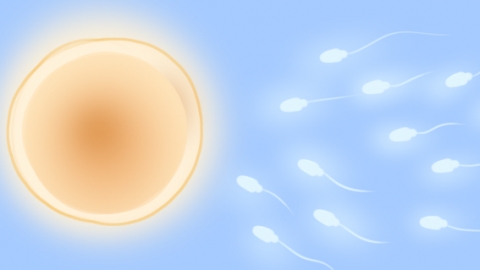What causes yellowish semen?
Under normal circumstances, yellowish semen may be caused by prolonged abstinence from ejaculation, dietary and lifestyle influences, urethritis, prostatitis, seminal vesiculitis, and other factors. It is recommended to seek timely medical consultation and receive treatment under the guidance of a physician. Detailed explanations are as follows:

1. Prolonged Abstinence from Ejaculation
The male reproductive system continuously produces sperm. If ejaculation does not occur over a prolonged period, sperm stored in the epididymis remain for too long, gradually aging and decomposing, thereby increasing the proportion of aged sperm in the semen and causing the semen to appear yellowish. It is recommended to maintain a regular sexual life or ejaculation frequency, approximately once or twice weekly, to avoid excessive abstinence.
2. Dietary and Lifestyle Influences
Consuming excessive spicy, greasy, or stimulating foods, or long-term heavy alcohol consumption, smoking, and staying up late can affect the body's endocrine system and metabolism. Hormonal imbalances may alter the microenvironment of the reproductive system, while metabolic abnormalities can lead to accumulation of waste and toxins in the body, thereby affecting the composition and characteristics of semen and causing yellowish sperm. It is advisable to maintain a balanced diet, consume more vegetables and fruits, reduce intake of spicy and greasy foods, quit smoking, limit alcohol consumption, and establish regular作息 habits, such as going to bed early and waking up early, avoiding staying up late.
3. Urethritis
Urethritis is primarily caused by pathogenic infections, such as Neisseria gonorrhoeae, Chlamydia trachomatis, and Mycoplasma genitalium. These pathogens multiply extensively in the urethra, triggering an inflammatory response. The inflammation irritates the urethral mucosa, producing purulent secretions that mix with semen, resulting in yellowish sperm. Symptoms such as urethral itching, burning pain, and frequent urination commonly occur simultaneously. Patients need to take medications such as azithromycin tablets, levofloxacin hydrochloride capsules, and cefixime dispersible tablets under the guidance of a physician.
4. Prostatitis
The causes of prostatitis may include pathogen infection, urination dysfunction, psychosocial factors, and neuroendocrine factors. When the prostate becomes inflamed, the secretion of prostatic fluid becomes abnormal, altering its composition. When mixed with semen, it changes the color, texture, and odor of semen, causing yellowish sperm. Symptoms such as urgency to urinate, painful urination, and incomplete voiding may also occur. Patients should follow medical advice to take medications such as Qianlieshutong capsules, tamsulosin hydrochloride sustained-release capsules, and Longbishu capsules for treatment.
5. Seminal Vesiculitis
Seminal vesiculitis is mostly caused by retrograde infection, wherein pathogenic bacteria spread from the urethra or ejaculatory duct upward to the seminal vesicles. When the seminal vesicles become inflamed, the seminal vesicle mucosa experiences congestion and edema. The seminal vesicle fluid produced contains inflammatory cells, red blood cells, etc., which mix with semen, causing the semen to appear yellowish. Symptoms such as hematospermia, painful ejaculation, and lower abdominal pain may also occur. Patients can take medications such as cefuroxime axetil tablets, metronidazole tablets, and moxifloxacin hydrochloride tablets under a physician's recommendation.
In daily life, attention should be paid to personal hygiene, especially cleanliness of the genital organs; prolonged sitting should be avoided, and appropriate physical exercise should be conducted; regular medical check-ups should be performed to promptly detect and address potential health issues.







